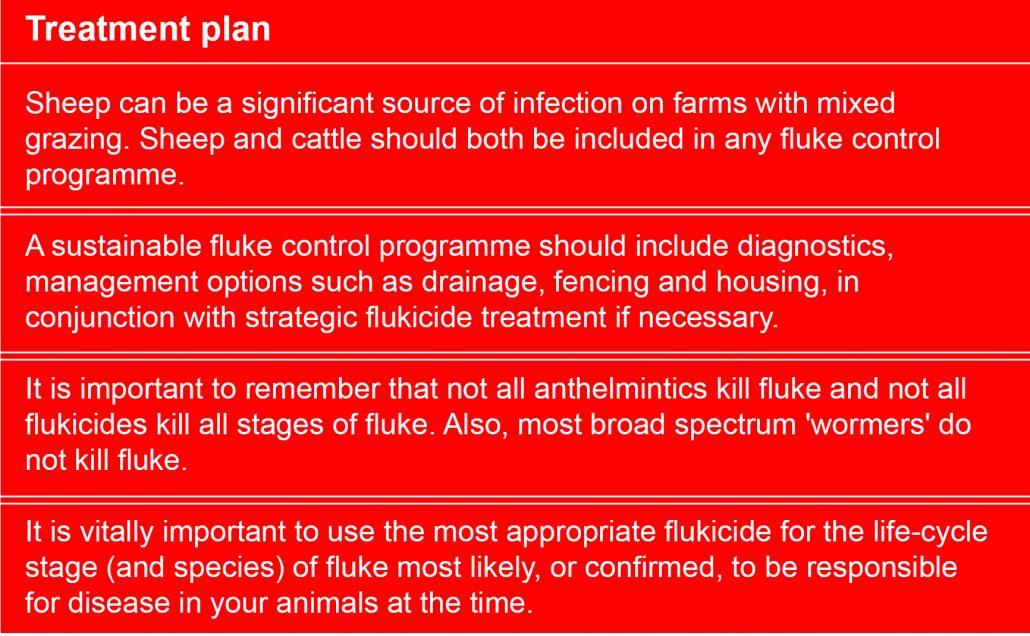Liver fluke has a complicated life-cycle involving a tiny mud snail which is the intermediate host responsible for infection on pasture.
Traditionally Liver fluke was thought to be very regional however movement of stock, changing weather patterns and ground conditions have increased the fluke risk to the whole of the UK. Lancashire has a climate that favours the snail and therefore also favours fluke transmission and increase fluke risk.
A move to housing dairy cows all year round may be thought to remove the risk of Liver Fluke from the herd, but positive bulk milk samples are still reported from zero grazing herds! Where heifers are turned out they may become infected and maintain a reservoir of infection. Where fluke is identified these animals should receive appropriate treatment. Sheep, deer, hares, geese and horses can all carry fluke and complete the lifecycle outside of the snail.
New research by the Mordun Institute has found that Metercerariae (the stage passed by the mud snail that are ingested by cattle) are very persistent and this stage of fluke can survive in silage. Heat and pH are thought to be involved in killing off the Metercerariae in most cases, but in less well fermented silage, wet silage and less acidic silage this is less so. With this in mind poorly made silage, later cuts and big bale silage pose the highest risk. Last year’s silage crops were certainly made in challenging conditions.
Further investigations into housed youngstock infections, egg survival and spread in slurry are ongoing but if you have history of fluke infections in housed cattle submitting further investigation may be useful.

Even in herds that are housed 365, there is still a risk of liver fluke. There is an inexpensive bulk milk test available, some interpretation is needed if first lactation heifers are introduced after grazing. However there is a test available (the coproantigen test) that will test for current infection to differentiate this. It is also thought that Liver fluke can survive in cattle for 2 years.
![]()
Due to the complex life cycle and products available to treat lactating cattle, treatment is often targeted at dry cows often making it difficult to treat the correct animals at the correct stage of infection. Creating a testing and treatment plan with your vet is the best course of action on an individual farm basis. Care should be taken to select appropriate treatment product for dairy cattle, flukicide residues are increasingly being detected in bulk milk samples.

